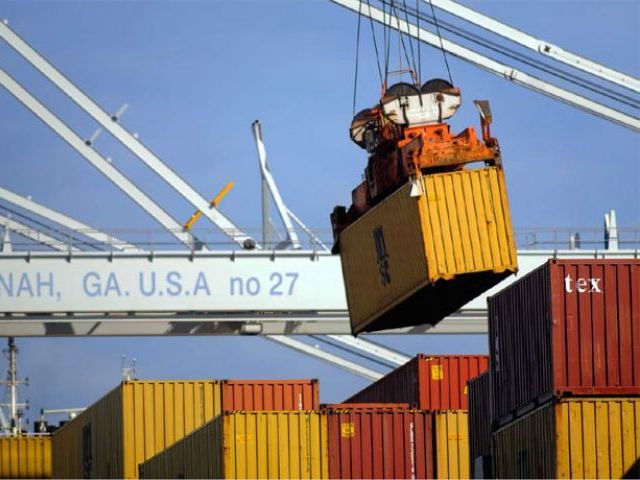Everyone knows that burgeoning imports are a problem, which results in expanding deficits (Current Account Deficit), and eventually higher external debt. The incumbent government, or the ones before it never had a coherent Import Substitution policy. Such a policy discourages imports by incentivizing the local production of such goods. This has a dual-pronged benefit – the import bill reduces (resulting in conservation of foreign exchange reserves), and local manufacturing is encouraged, through which local employment is generated while decreasing reliance on imports.
The focus of this piece would largely be on consumables and other consumer-driven imports. Since such goods are often the first to get tariffs slapped on – a rational economic policy would focus on encouraging local production of such goods, to eliminate such imports through import substitution. A growing population and increasing purchasing power means that demand for such consumables will be increasing rapidly over the years – making it essential to have a strong local production base, rather than solely relying on imports.
Through a review of data provided by Pakistan Bureau of Statistics, we filtered imports which amounted to more than PKR 1 billion, with the second round of filter being applied to select broad categories of consumables. In the first part of this exploratory overview, we will be focusing on 3 major categories, and how local production of same can be encouraged to ward off imports.
Palm Oil
Pakistan’s import bill is not just marred by crude oil, but also by Palm Oil. We imported more than USD 1.77 billion of Palm Oil in 2016-17, imposing severe pressure on the current account deficit. Palm Oil is used to produce a host of consumables such as bread, chocolates, shampoo, margarine, detergent etc. With such a wide variety of use across the consumer space, the demand for Palm Oil will keep on growing, as incomes and purchasing power increases in the country.
To manage the import of Palm oil in the longer run, the government on a priority basis must start plantation of Palm trees along the coastal belt of Sindh and Baluchistan. A million Palm tree tsunami isn’t a bad idea either. A special cell needs to be created to incentivise and promote Palm tree farming. Five-year grants should be given with bare minimum cost to farmers, as it takes about four years for oil to be extracted from the fruit of these trees.
It is to be noted that about 40 percent of the Palm oil import is the refined product, while the rest is crude palm oil. Pakistan has an idle domestic capacity which can be used to produce refined palm oil. The government needs to incentivise local refineries by increasing duty on the refined product, creating a duty structure which incentivizes local production, rather than import of finished product. Additional tax benefits can also be given to those operating full capacity while maintaining quality standards. Through tactful imposition of tariffs, and encouraging local production, it is possible to reduce import bill associated with Palm oil.
Pulses & Peas
More than USD 1 billion of various pulses and peas are imported in Pakistan. In 2016-17, imported Dried Shell Peas amounted to USD 232 million, while Chickpeas imported were around USD 366 million, among other pulses. Despite being a predominantly agrarian economy, having to import billion dollars of pulses is a consequence of bad policy dynamics. Agriculturalists do not have an incentive to grow pulses but instead are heavily incentivized to grow wheat at an ever-increasing support price, which also makes it expensive for the consumer.
The government should incentivize cultivation of pulses, such that Pakistan becomes self-sufficient in the production of pulses & peas (which it once was earlier as well). Subsidy driven wheat production often always results in a bumper crop, resulting in more wastage, and expensive wheat for everyone else.

An allocation of such subsidies to the production of pulses may not only reduce the price of wheat but also reduce imports of pulses. The foreign exchange saved, and the saving of potential interest paid on such borrowing may outweigh any subsidies that are provided to encourage production of pulses in the short term.
A comprehensive agricultural policy which balances food security, affordability and vulnerability to imports is essential for long-term sustenance and growth of the sector. The government’s lack of focus on developing a strong and efficient agricultural base is a consequence of rent-seeking attributes of most in the parliament, and policy-making quarters.
Mobile Phones & Sim Cards
Pakistan has more than 150 million cellular subscribers, with a teledensity of 73 percent. In 2016-17, Pakistan imported 13 million mobile phones, for about USD 709 million. Most devices imported are low-end devices, with an average import cost of USD 54 per device. It is estimated that the replacement cycle of mobile phones is around 24 months, suggesting that there is a potential demand for at least 70 million devices annually – of which only 13 million are imported through formal channels, the rest are either smuggled or mis-declared. Most expensive devices are predominantly smuggled into the country, through various channels – a topic which is beyond the scope of this article.
Similarly, 38.6 million mobile sims were imported in 2016-17 for about USD 13 million. An increasing teledensity has pushed up demand for mobile devices, and mobile sims – which is only going to increase in the future. It is also estimated that more than 90 percent of mobile devices and sims are imported from China.

Importing more than USD 700 million of disposable low-end mobile devices is a fool’s endeavour, for which valuable foreign exchange reserves are spent. The government must consider incentivizing traders, and manufacturers to initiate manufacture of mobile phones in Pakistan, through joint ventures, or alliances with major mobile device manufacturers. This will not only boost local manufacturing but also encourage technology and skill transfer, resulting in the development of the necessary ecosystem.
It is imperative necessary tax breaks, and other incentives are also given to incentivize local manufacturing, while duties are imposed to discourage imports as long as local products maintain bare minimum quality requirements. The incentives should not only be restricted to assembly but must also encourage the development of a thriving ecosystem of suppliers and ancillary industries, such that most components can be manufactured locally as much as possible.
In the case of mobile sims, existing companies providing cellular services, who have a cumulative revenue of more than PKR 464 billion can contribute towards the creation of a company which manufactures mobile sims, thereby eliminating the need to import mobile sims. The existing cellular companies can be motivated to put up equity, in partnership with other private sector enterprises to develop a sim manufacturing unit. Something completely basic, and the demand for which will continue to grow. Necessary tax breaks and other incentives for a greenfield project can also be provided to incentivize establishment of manufacturing facilities for mobile sims.
*Muhammad Bilal Moon co-authored the piece.














